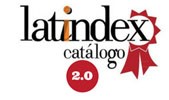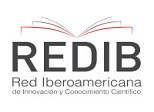The challenge of artificial intelligence in social science research
Keywords:
Artificial intelligence, social, technology, scientificAbstract
Artificial intelligence (AI) has significantly transformed social science research, presenting both opportunities and challenges. This technology enables efficient analysis of large volumes of data, making it easier to identify hidden patterns and trends, especially in areas such as electoral behavior and the impact of public policies. Automating repetitive tasks also frees up time for deeper and more accurate analysis, however, the adoption of AI poses serious ethical and methodological challenges, especially regarding the privacy of personal data and the transparency of algorithms. According to the research, 72% of the researchers surveyed reported a positive impact of AI on data analysis, although 50% expressed significant ethical concerns. In addition, 42% pointed out a lack of technical knowledge as a major barrier. Therefore, to mitigate these problems, interdisciplinary collaboration and the development of clear policies that ensure AI's fair and equitable use are crucial. In conclusion, although AI offers notable improvements in the accuracy and efficiency of data analysis in social sciences, its implementation must be accompanied by rigorous ethical practices and adequate technical training.
References
Bishop, C. M. (2006). Pattern Recognition and Machine Learning. Springer.
Boyd, D. & Crawford, K. (2012). Critical Questions for Big Data: Provocations for a Cultural, Technological, and Scholarly Phenomenon. Information, Communication & Society, 15(5), 662-679. https://www.researchgate.net/publication/281748849_Critical_questions_for_big_data_Provocations_for_a_cultural_technological_and_scholarly_phenomenon
Calvo, R. A., & Peters, D. (2019). AI in Education: A Critical Social and Ethical Perspective. Cambridge, M.A. MIT Press.
Corvalán, J. (2018). Inteligencia artificial: retos, desafíos y oportunidades – Prometea: la primera inteligencia artificial de Latinoamérica al servicio de la Justicia. Revista de Investigações Constitucionais, 5(1), pp. 295-316.
Domingos, P. (2015). The Master Algorithm: How the Quest for the Ultimate Learning Machine Will Remake Our World. Washington, Seatle. Basic Books.
Eubanks, V. (2019). Automating Inequality: How High-Tech Tools Profile, Police, and Punish the Poor. St. Martin's Press.DOI: 10.5204/lthj.v1i0.1386
Floridi, L. (2024). The Fourth Revolution: How the Infosphere is Reshaping Human Reality. Oxford University Press.
Llano Arana, L., Gutiérrez Escobar, M., Stable Rodríguez, A., Núñez Martínez, M., Masó Rivero, M., & Rojas Rivero, B. (2016). La interdisciplinariedad: una necesidad contemporánea para favorecer el proceso de enseñanza aprendizaje. Revista Medisur, 14(3), pp. 320-327.
Magallanes Ronquillo, K. K., Plúas Pérez, L. del R., Aguas Veloz, J. F., & Freire Solís, R. L. (2023). La inteligencia artificial aplicada en la innovación educativa en el proceso de enseñanza y aprendizaje. LATAM Revista Latinoamericana de Ciencias Sociales y Humanidades 4(2), 1597–1613. https://doi.org/10.56712/latam.v4i2.706
Mayer-Schönberger, V., & Cukier, K. (2013). Big Data: A Revolution That Will Transform How We Live, Work, and Think. Eamon Dolan/Houghton Mifflin Harcourt.
Paredes-Gómez, M. F., Enríquez-Cruz, M. J., & Vargas-Tamayo, M. G. (2024). Oportunidades y Adaptabilidad en la Inteligencia Artificial para la Creación de Contenido. Revista Enfoques De La Comunicación, (12), 167–198. https://revista.consejodecomunicacion.gob.ec/index.php/rec/article/view/205
Van Dijck, J. (2014). "Datafication, dataism and dataveillance: Big Data between scientific paradigm and ideology". Surveillance & Society, 12(2), 197-208.
Published
How to Cite
Issue
Section
License
Los artículos enviados a la Revista Científica Hallazgos21 deberán ser totalmente originales e inéditos.
Los autores son los responsables de los textos y las imágenes incluidas en los artículos y no necesariamente reflejan el pensamiento de la editorial o de la Pontificia Universidad Católica del Ecuador, Sede Esmeraldas (PUCESE).
Los autores disponen cederle a la Revista Científica Hallazgos21 todos los derechos inherentes para la edición, publicación y distribución o divulgación del mismo.
Se autoriza a las revistas firmantes de los acuerdos de Encuentros de Revistas Latinoamericanas para reproducir en parte o totalmente los artículos con la sola mención de la fuente claramente señalada.







